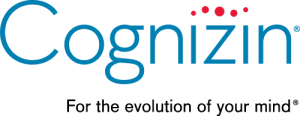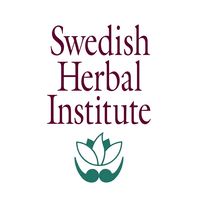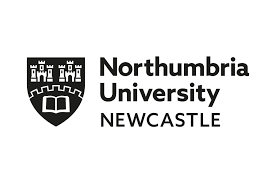The science behind our ingredients
The ingredients that make up our formulation have been carefully selected based on rigorous studies, efficacy and uncompromising quality.
Please note: All statements made on this website are paraphrased from evidence reported in studies below.
Cognizin
Dose Per Can 500mg
Cognizin, a well-regarded nootropic, stands as a prime example of the impact of scientific research on cognitive function and mental clarity. This unique ingredient, supported by scientific studies and human trials, plays a role in improving brain health. It accomplishes this by aiding in the production of acetylcholine, a neurotransmitter essential for efficient neural communication, and by enhancing cerebral energy metabolism.
Learn more below about the research supporting this ingredient.
Primary Study
Primary Study

This study on adolescents observed that supplementation with Cognizin improved attention, psychomotor speed, and reduced impulsivity compared to adolescent males who received placebo.
Additional Study 1
Additional Study 1

A study of middle-aged women who were administered a 500mg dose showed a significantly better ability to produce correct responses on a continuous performance test, likely due to improved cognitive inhibition. These findings suggest that Cognizin can improve attentional performance.
Additional Study 2
Additional Study 2
This study of healthy volunteers who were administered a 500mg dose of CDP-choline had significantly improved processing speed, working memory, verbal learning, verbal memory compared to those taking the placebo
Additional Study 3
Additional Study 3
A study of older volunteers given citicoline showed that intake of 1000mg per day for 3 months improved delayed recall on logical memory for subjects with inefficient memories.
Additional Study 4
Additional Study 4
This study of elderly volunteers administered citicoline at doses of 500mg per day for 4 weeks showed a significant improvement in word recall, immediate object recall, and delayed object recall.
Additional Study 5
Additional Study 5
This study showed that a group of healthy volunteers who were administered Cognizin at a dose of 500mg per day for 6 weeks had improved frontal lobe bioenergetics, which suggests citicoline supplementation may help to mitigate cognitive decline associated with ageing.
Additional Study 6
Additional Study 6
A study on 40 healthy volunteers showed that administration of 500mg of citicoline improved most variables of psychomotor performance and working memory compared to placebo.
Rhodiola Rosea
Dose Per Can 400mg
Rhodiola rosea has been traditionally used for its ability to quash stress-induced fatigue. The mechanisms behind rhodiola rosea's adaptogenic and nootropic effects are complex but nevertheless show strong effectiveness in human trials. Rhodiola rosea has been observed in numerous studies to show abilities surrounding alleviating fatigue caused by psychological stress.
Learn more below about the research supporting this ingredient.
Primary Study
Primary Study

This is a physical trial on physicians (20-35 years old) during night duty and tested for categories such as mental fatigue, involving complex perceptive and cognitive cerebral functions, associative thinking, short-term memory, calculation, ability of concentration, and speed of audio-visual perception. It found that there was a statistically significant improvement in all 5 tests meaning that in these cases Rhodiola Rosea helps relieve stress induced fatigue.
Additional Study 1
Additional Study 1

Over 150 cadets, between the ages of 19 and 21, were given Rhodiola rosea supplements during a specific cognitive test with a background of stress-induced fatigue. This study found there was a pronounced anti-fatigue effect in psychometric tests compared to a placebo group.
Additional Study 2
Additional Study 2
A study on men and women between the ages of 20 and 55, where Rhodiola rosea was administered daily, showed a significant difference in numerous tests aiming to see its effect on fatigue and attention. The study concluded that repeated supplementation with rhodiola rosea has an anti-fatigue effect that increases mental performance, particularly with improved concentration and decreasing the body's stress responses.
Additional Study 3
Additional Study 3
This clinical trial on 120 people suffering from burnout given a daily dosage of 400mg rhodolia rosea for 12 weeks demonstrated significant improvement for all stress related symptoms.
Additional Study 4
Additional Study 4
A study on students showed that supplementation of rhodiola rosea during a busy exam period significantly improved mental fatigue and neuro-motoric tests.
L-Theanine (Camellia Sinensis)
Dose Per Can 400mg
L-theanine is thought to enhance alpha-wave activity in the brain. The relaxed but alert mental state associated with alpha waves can promote creativity, focus, and attention. Human electroencephalograph (EEG) studies have provided evidence that L-theanine has a direct impact on these waves in the brain. The alpha frequency band activity is increased by L-theanine, indicating that it relaxes the mind without causing drowsiness.
Learn more below about the research supporting this ingredient.
Primary Study
Primary Study

This physical study on young adults tested L-theanine and caffeine in conjunction with one another on a plethora of cognitive-behavioural tasks. When combined and supplemented, those who took caffeine and L-theanine saw an increase in accuracy during task switching tests and subjective alertness and tiredness, showing that the combination helps focus attention during arduous cognitive tasks.
Additional Study 1
Additional Study 1
This study tested healthy, young participants using an electroencephalograph (EEG) to measure their brainwave activity while supplementing L-theanine. The data this study provided suggests that L-theanine has a significant effect on the brain's state of alertness and awakeness.
Additional Study 2
Additional Study 2
Healthy adults who were given 200mg of L-theanine per day for 4 weeks had improved cognitive function, verbal fluency and executive function scores, and reduced stress related symptoms in this randomised placebo controlled trial.
Additional Study 3
Additional Study 3
This study on the effect of theanine and caffeine on attention showed that recognition visual reaction time was significantly improved by theanine, caffeine, and the theanine caffeine combination compared to placebo.
Additional Study 4
Additional Study 4
This study showed that both L-theanine and L-theanine caffeine combination resulted in faster responses than placebo due to a decrease in activity in brain regions which typically show increased activation during mind wandering, suggesting that L-theanine enhances attention to target stimuli.
Additional Study 5
Additional Study 5
This study showed that the combined intake of L-theanine and caffeine on athletes had the best effect on cognitive performance, and the combination of both was found to be more effective than single use of caffeine or L-theanine.
Caffeine
Dose Per Can 120mg
Caffeine has an impact on adenosine receptors in our brain. Adenosine causes muscle relaxation and sleepiness when it acts on these receptors. Caffeine blocks the adenosine from binding to these receptors, and when it does, it prevents the adenosine from building up, preventing the feeling of fatigue and drowsiness.
Learn more below about the research supporting this ingredient.
Primary Study
Primary Study

This is a human trial on caffeine consumers at different dosages (0mg, 12.5mg, 25mg, 50 mg, and 100mg) and its effect on cognitive performance. The study shows that after overnight caffeine abstinence, caffeine can significantly affect cognitive performance and mood at doses within and even lower than the range of amounts of caffeine contained in a single serving of popular caffeine-containing drinks.
Additional Study 1
Additional Study 1

This study on non-dependent caffeine consumers tested mood, alertness, and cognitive performance. The data showed that with caffeine supplementation, the participants had an increased number of hits and decreased reaction times in a vigilance task. This data suggests an increase in mental performance and significantly increased feelings of subjective positive mood. It's worth noting that this test also shows that when caffeine is supplemented alone, it can impair performance on memory-based tasks.
Additional Study 2
Additional Study 2
This study psychometrically tested 27 participants who had ingested either caffeine alone, caffeine and L-theanine, or a placebo. The data that this study collected showed that when administering caffeine alone, there was an improvement in alertness and accuracy; however, it also found that upon supplementing both caffeine and L-theanine, there was an improvement in accuracy, speed, and performance on memory tasks.
Additional Study 3
Additional Study 3
EFSA (European Food Safety Authority) published a scientific opinion on the ‘increased alertness’ health claim related to caffeine. They concluded that at doses of over 75mg per serving in all caffeine related scientific studies that have been carried out, a significant reduction in measures of reaction time is observed.
Panax Ginseng
Dose Per Can 200mg
Panax ginseng contains ginsenosides, the active compound that gives the substance its nootropic properties. It has been shown to influence various neurotransmitter systems in the brain. Studies have shown the benefits of Panax ginseng on fatigue over a sustained period of consistent mental activity.
Learn more below about the research supporting this ingredient.
Primary Study
Primary Study

This physical trial on 30 healthy young adults tested supplementation with either a placebo, 200mg of Panax ginseng, or 400mg of Panax ginseng. The study found Panax ginseng can improve performance and subjective feelings of mental fatigue during sustained mental activity.
Additional Study 1
Additional Study 1

This study investigated the antifatigue effects of panax ginseng in 90 subjects (21 men and 69 women) experiencing long-lasting fatigue in a randomised, double-blind, placebo-controlled, and parallel-designed trial. The results provide evidence of the antifatigue effects of panax ginseng in patients suffering from long-lasting fatigue symptoms.
Additional Study 2
Additional Study 2
This study, which tested the administration of a combination of Panax ginseng, glucose, and a placebo to 27 healthy young adults, shows that Panax ginseng has a clear effect on mental arithmetic performance. The study's results showed that Panax ginseng enhanced performances on a calculation task and reduced the increase in mental fatigue experienced by participants during the later stages of a demanding mental task.
B Vitamins
Dose Per Can 100% RI
B vitamins are essential for productivity as they are directly involved in the body's use of energy, neurotransmitter synthesis, brain cell maintenance, and the prevention of cognitive decline.
Learn more below about the research supporting this ingredient.
Vitamin B1
Vitamin B1
Adequate thiamine levels are essential for brain cells to produce and utilise energy efficiently. A well-functioning energy metabolism is vital for maintaining optimal cognitive function and mental clarity.
Vitamin B2
Vitamin B2
Riboflavin aids in the synthesis of two coenzymes that serve as antioxidants in the body, flavin adenine dinucleotide (FAD) and flavin mononucleotide (FMN). Antioxidants assist in defending against oxidative stress, which can cause cell damage and cognitive decline in brain cells.
Riboflavin is essential for maintaining the myelin sheath, a protective layer around nerve cells. Myelin sheaths that are intact support effective neuronal communication, improving overall brain function.
Vitamin B3
Vitamin B3
Niacin is a precursor to two coenzymes that help cells produce energy: nicotinamide adenine dinucleotide (NAD) and nicotinamide adenine dinucleotide phosphate (NADP). It is essential for brain cells to have an adequate energy metabolism in order to support cognitive processes.
Vitamin B5
Vitamin B5
Pantothenic acid is a component of coenzyme A (CoA), which is essential for energy production from carbohydrates, fats, and proteins. Brain cells must have an adequate energy metabolism in order to support normal cognitive functions.
Vitamin B6
Vitamin B6
Gamma-aminobutyric acid (GABA), a neurotransmitter that slows signals in the brain and causes a calming effect in times of stress, as well as serotonin and dopamine synthesis, is dependent upon the vitamin Pyridoxine (Vitamin B6). These neurotransmitters are essential for mood regulation, cognitive processes, and overall brain function.
Vitamin B7
Vitamin B7
Biotin plays a role in gluconeogenesis, a process where the body synthesises glucose from non-carbohydrate sources, like proteins and fats. Maintaining stable blood glucose levels is important for brain function, as the brain relies on glucose as its primary energy source.
Vitamin B9
Vitamin B9
Folate is essential for the synthesis and repair of DNA and RNA, which are crucial for cell growth and function, including brain cells. Importantly, Folate is involved in methylation reactions in the body, which influence gene expression and various biochemical pathways.
Vitamin B12
Vitamin B12
Being deficient in Cobalamin has been shown to cause cognitive deficit and can result in neurological damage meaning that keeping to your daily allowance on B12 is imperative to making sure that your brain is working at full capacity.

Sweeteners
We wanted to make sure that sugar content and calories wouldn't be a barrier to consuming Neutonic, which meant that we needed to find suitable sweeteners in order to preserve its great taste. We tasted and analysed a lot of different sweeteners, including xylitol, erythritol, aspartame, and stevia, before deciding on sucralose and acesulfame K.
Although erythritol, xylitol, and stevia are natural sweeteners, their combination in our formulations presented significant taste concerns, regardless of our attempts to counteract them. We spent a significant amount of time and resource trying to find a solution where we could use a natural sweetener while preserving the drink's taste profile; however, regardless of our attempts, these sweeteners added a significant aftertaste. The flavour profile of these natural sweeteners was a substantial deterrent, greatly diminishing the whole sensory experience of our drinks, meaning we couldn't justify their use.
Sucralose and acesulfame K combined demonstrated improved taste profiles and provided a better sensory experience without sacrificing overall sweetness. As well as this, we assessed all of the current literature surrounding these sweeteners and found there to be minuscule evidence to deter their use, meaning they were the optimal option.
Sucralose
Sucralose
This meta analysis shows the safety of the use of sucralose
Acesulfame K
Acesulfame K
This meta analysis shows the safety of the use of Acesulfame K



